Scientists develop roadmap to create new treatment strategies for ovarian cancer
October 12, 2023
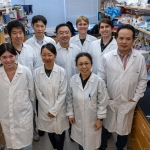
Interdisciplinary collaboration between the labs of Lili Yang, UCLA associate professor of microbiology, immunology, and molecular genetics (MIMG), and Dr. Sanaz Memarzadeh, professor of obstetrics and gynecology, led to the development of a roadmap to create new treatment strategies for ovarian cancer. Explore more here: https://www.uclahealth.org/news/scientists-develop-roadmap-create-new-treatment-strategies
Let’s Talk Science: Innovative Therapies: From the Bench to Bedside
Have you had a chance to catch the ‘Let’s Talk Science’ webinar hosted by Dean Johnson? MIMG faculty members Don Kohn and Carrie Miceli, along with Mireille Kamariza, an assistant professor from the bioengineering department, highlighted UCLA’s efforts in conducting both basic and cutting-edge translational bench-to-bedside research, which is leading to improved diagnostics and treatments for diseases. Watch the video below:
Graduate Student receives F30 grant award from NIH/NIAID
July 25, 2023
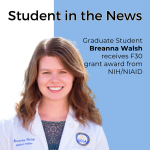
Congratulations to graduate student Breanna Walsh, in the UCLA-Caltech Medical Scientist Training Program, for receiving the ‘F30 Ruth L. Kirschstein Individual Predoctoral NRSA for MD/PhD and other Dual Degree Fellowships’ award from the NIH-NIAID National Institute of Allergy and Infectious Diseases.
In Dr. Elissa Hallem’s lab, Breanna is investigating the neural basis of oxygen response in parasitic nematodes.
The Wow of Pow Wow
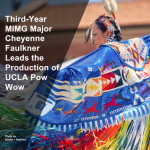
June 12, 2023
Cheyenne Faulkner, a third-year MIMG student, has been at the helm of organizing UCLA Pow Wow for the last two years. This year’s event took place in May 2023 at the Wallis Annenberg Stadium and attracted around 5,000 attendees.
Read more: https://bit.ly/3O3atd9
QCBio Announces Postdoc Career Development Seminar Series
For those interested, please register at the link here.
For more information, please contact qcboffice@lifesci.ucla.edu
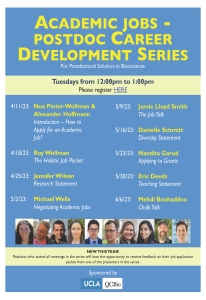
Dr. Lili Yang and Dr. Elaine Hsiao Featured on BIOS 2023 Top Academic Entrepreneurs List
March 8, 2023
In honor of International Women’s Day 2023, BIOS has released their “Top 23 Academic Entrepreneurs Shaping Translational Research” list. Among the honorees are MIMG Faculty Dr. Lili Yang and Dr. Elaine Hsiao for their hard work.
For more information, please see the list here: https://bioscommunity.substack.com/p/b5b2d15f-5170-4118-af60-2e921fdc007f
Dr. Elaine Hsiao To Head Newly-Established Goodman-Luskin Microbiome Center
February 15, 2023 (Sourced from UCLA Newsroom)
Among the most promising areas of scientific inquiry is the study of the human microbiome and its effect on health. To fuel more rapid progress in this field, Andrea and Donald Goodman and Renee and Meyer Luskin have made a $20 million gift to establish the UCLA Goodman–Luskin Microbiome Center.
Research at the center will focus on the microbiome’s role in disease prevention and the body’s immune response with the goal of developing new treatments for a range of conditions including inflammatory bowel disease; obesity and eating disorders; neurodevelopmental and neurodegenerative diseases, such as autism, Alzheimer’s and Parkinson’s diseases; irritable bowel syndrome; and substance use and psychiatric disorders. There are also gender differences in the microbiome…
Geffen School of Medicine scientists collaborate on microbiome-related research with faculty members from the UCLA Samueli School of Engineering, the UCLA Fielding School of Public Health, and the UCLA College divisions of life sciences and physical sciences.
The gift funds a new headquarters in the UCLA Center for Health Sciences to support collaboration among numerous labs and brain-gut investigators engaged in seven focus areas. Elaine Hsiao, UCLA’s De Logi Professor of Biological Sciences, will lead the comprehensive enterprise. In 2022, Hsiao was one of three researchers nationally to be recognized by the New York Academy of Sciences with a Blavatnik National Award for Young Scientists.
The gift also funds a fellowship to train and mentor physician-scientists, an early-career research fund to support promising scientists, an endowed chair in brain-gut-microbiome research and an annual symposium — all aimed at fostering a fuller understanding of the brain-gut-microbiome interface and its role in human health.
To read more, please see the full article here: https://newsroom.ucla.edu/releases/ucla-establishes-goodman-luskin-microbiome-center
Building Manager Alonzo Cortez Receives Staff Assembly Spotlight
February 10, 2023
Our very own Building Manager Alonzo Cortez was featured on UCLA Staff Assembly’s Staff Spotlight! Congratulations to Alonzo 🎉👏
As the building manager, he oversees various facilities including offices, laboratories and animal vivarium. He coordinates with various departments and entities including facilities management, environment, health and safety, emergency management, etc.
He is our first to-go person whenever something is wrong, whether it’s ceiling leak, water seeping onto the floor, and safety questions. He has worked tirelessly on campus during the COVID pandemic shut down and ensure proper precaution and safety measures are implemented when we slowly return to our offices and laboratories.
MIMG would like to take this opportunity to thank Alonzo and all the building managers and facilities for all they do.
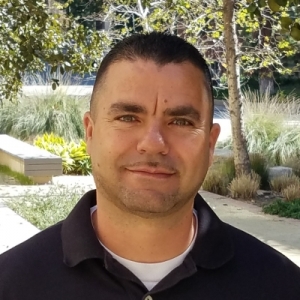
New MIMG 6 Course for Non-Microbiology Majors!
February 8, 2023
Looking for a great GE course this summer? Microbiology for Nonmajors (MIMG 6) fulfills the Foundations of Scientific Inquiry requirement! MIMG 6 is designed for non-science students. It is an introduction to biology of microorganisms (bacteria, viruses, protozoa, algae, and fungi), their significance as model systems for understanding fundamental cellular processes, and their role in human affairs. This course aims to provide students with general knowledge in microbiology, such as microbial diversity, and includes theories and methodologies related to microbiology, such as gram staining. This course also informs students about important issues in microbiology, such as microbial mutations, disease and immunity, viruses and cancer. Students will also be informed on advances in the sciences, including emerging infections and food microbiology. Students are provided diverse perspectives from scientists.
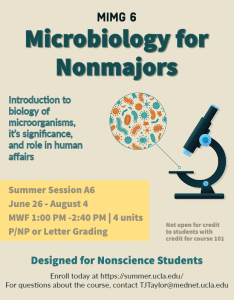
Dr. Yvonne Chen’s Work with ImmPACT Bio Approved by FDA
January 26, 2023 (Sourced from PR Newswire)
ImmPACT Bio USA, Inc. (“ImmPACT Bio”), a clinical-stage company developing transformative logic-gate-based chimeric antigen receptor (CAR) T-cell therapies for treating cancer, today announced clearance of its first Investigational New Drug (IND) application by the U.S. Food and Drug Administration (FDA) for IMPT-314, a bispecific “OR-Gate” autologous CAR T-cell therapy targeting the B-cell antigens CD19 and CD20. IMPT-314 will be studied in a Phase 1/2 clinical trial in patients with aggressive B-cell lymphoma, including diffuse large B-cell lymphoma (DLBCL).
“Based on the pioneering work of Yvonne Chen, Ph.D., associate professor at the University of California, Los Angeles (UCLA), this CD19/CD20-directed bispecific CAR has demonstrated clinically meaningful and differentiated results in an ongoing investigator-led study at UCLA. Principal investigator Sarah Larson, M.D., studied patients with non-Hodgkin lymphoma (NHL), including various subtypes of aggressive B-cell lymphoma, DLBCL, non-indolent or refractory follicular lymphoma (FL), and mantle cell lymphoma (MCL). Data from the study demonstrated 90 percent of patients (9/10) had an objective response with 70 percent (7/10) of patients achieving a durable complete response (CR). Of note, no patients had neurotoxicity, also known as immune effector cell-associated neurotoxicity syndrome (ICANS). Patients had Grade 1 or no cytokine release syndrome (CRS). Median follow-up was more than 20 months and median progression-free survival (PFS) is 18.2 months. These results from the first 10 evaluable patients were recently published in Cancer Discovery. The UCLA study continues to enroll additional patients.
“Dr. Chen designed this bispecific CAR to address antigen escape, which is a key challenge for current approved CD19 therapies for hematological malignancies,” said Dr. Larson. “We tested this anti-CD19/CD20 CAR-T cell therapy in patients with relapsed or refractory NHL and are encouraged about the potential of this therapy for patients.”
To read more about this news, please see the article here.
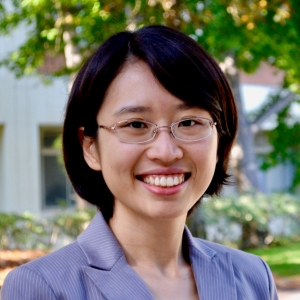
Manish Butte Lab ‘SymphNode’ Device Featured in Nature Biomedical Engineering
January 25, 2023 (Sourced from UCLA Newsroom)
An interdisciplinary UCLA research team, which includes Dr. Manish Butte’s lab, reports encouraging results in laboratory studies testing a tiny implantable device they call a SymphNode, which is designed to keep regulatory T cells in check only in the area around a tumor while summoning and strengthening tumor-fighting cells. The device was shown to drive tumors into remission, eliminate metastasis, prevent the growth of new tumors and result in longer survival in mice.
Their findings are published today in Nature Biomedical Engineering.
“Getting rid of regulatory T cells within the tumor seems to be transformative,” said co–corresponding author Manish Butte, UCLA’s E. Richard Stiehm Professor of Pediatric Allergy, Immunology and Rheumatology and a member of the California NanoSystems Institute at UCLA. “Every solid tumor is crammed with these cells, and they’re why 91% of cancer deaths occur from solid tumors. They’re probably limiting our ability to cure the cancer in the first place.”
The SymphNode is a tiny biodegradable sponge about the size of a pencil eraser that is made from alginate, the same jiggly polymer used to thicken pudding. When surgically implanted directly next to a tumor, the sponge stimulates the body’s immune response against cancer in multiple ways: It slowly releases a drug that blocks the regulatory T cells in the tumor. At the same time, it attracts and beefs up the T cells that kill tumors. The material that the device is made of resembles a lymph node, a welcoming setting for cancer-fighting cells, and has pores lined with antibodies that further activate those cells.
For further reading, please visit the article link here.
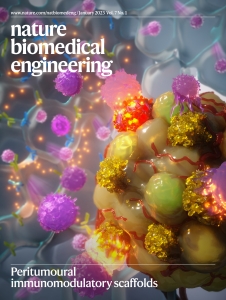
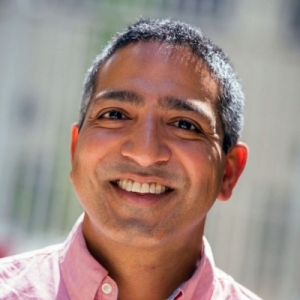
EndpointsNews Features Dr. Lili Yang in their 2022 Women in Biopharma’22 Report
December 19, 2022
Over the past three years, Endpoints News has spotlighted 60 women who have blazed trails and supercharged R&D across the biopharma world. MIMG Faculty Dr. Lili Yang is one of the latest recipients to be honored on this list for 2022. This profile recognizes her accomplishment in biotech entrepreneurship. In particular, Yang’s recent biotech startup, Appia Bio, which is based on her research in UCLA MIMG labs.
For more information, please read here: https://endpts.com/special-report-meet-20-extraordinary-women-who-are-supercharging-biopharma-rd/

Dr. Anthony Covarrubias Named New DEI Advisor of MBIDP
Dec 15, 2022
We are excited to announce that MIMG Faculty Member Dr. Anthony Covarrubias will be joining the UCLA Molecular Biology Interdepartmental Doctoral Program.
Anthony Covarrubias is an Assistant Professor in the Department of Microbiology, Immunology & Molecular Genetics. He is a first-generation college graduate and Latino scientist hailing from South Los Angeles. He received his Ph.D. from Harvard University and went on to complete his postdoctoral training at UCSF and Buck Institute for Aging Research. His research focuses on understanding the links between metabolism, inflammation, and diseases such as metabolic disease, aging, and cancer. He looks forward to working with MBIDP students to promote an inclusive and supportive environment.
Dr. Anthony Covarrubias will be joining fellow advisor Dr. Claudio Villanueva from UCLA IBP.
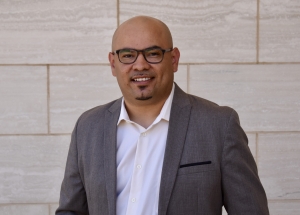
MIMG Undergraduate Scholars Showcase Their Research
December 5, 2022
MIMG undergraduate scholars had an amazing time showcasing their research and presentation skills at the Fall 2022 MIMG Undergraduate Research Symposium. The Symposium was designed to highlight MIMG students who are doing research in labs at UCLA and also students who took the “Path 1” curriculum,where they learned about conducting research and giving presentations. In short, 19 students presented posters at this session with members of the department and different labs coming to see the great work that is being done by our undergraduates.
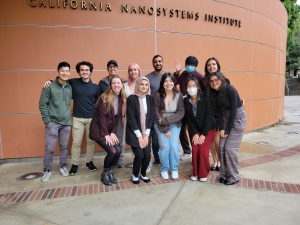
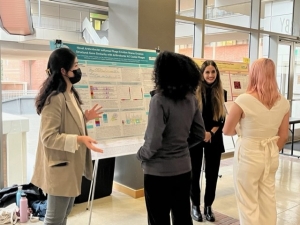
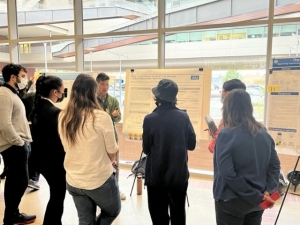
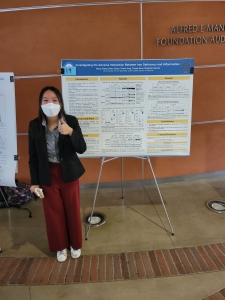
Dr. Elaine Hsiao Listed Among 40 UCLA scholars as a Highly Cited Researcher by Clarivate
November 15, 2022 (reposted from UCLA Newsroom)
Thirty-nine UCLA faculty members were named among world’s most influential researchers in the sciences and social sciences today.
The Highly Cited Researchers list, compiled annually by analytics firm Clarivate, identifies scholars whose work has been cited most often in papers published by other researchers in their fields over the past decade. Those chosen for the 2022 list have authored studies that rank in the top 1% in the number of scholarly citations worldwide. Several UCLA scholars were among the most highly cited researchers in more than one of the list’s 22 research categories.
“The Highly Cited Researchers list identifies and celebrates exceptional individual researchers at UCLA who are having a significant impact on the research community as evidenced by the rate at which their work is being cited by their peers,” said David Pendlebury, head of research analysis at the Institute for Scientific Information at Clarivate. “These individuals are helping to transform human ingenuity into our world’s greatest breakthroughs — and it is an honor to celebrate their achievements.”
Elaine Hsiao, integrative biology
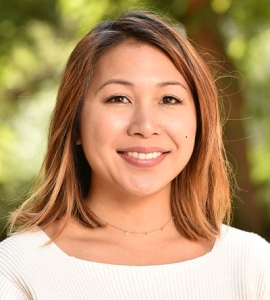
Dr. Lili Yang’s Cell Therapy Work to Improve Bone Marrow Transplantation Featured on UCLA News
October 28, 2022
The findings identify a potential strategy to make bone marrow transplants safer without disrupting their ability to fight cancer. While the protective effects iNKT cells have against graft-versus-host disease has been observed in patients in the clinic, this discovery has not yielded an available therapy because iNKT cells are so rare. The new study outlines a new method for producing large numbers of iNKT cells from donated cord blood. The researchers estimate one cord blood donation could produce more than 10,000 doses of iNKT cells for clinical use.
To read the full article, please see here: https://newsroom.ucla.edu/releases/cell-therapy-could-improve-bone-marrow-transplant-safety
Dr. Lili Yang’s work on iNKT Cells Featured on CIRM Blog
October 28, 2022
Dr. Yang and her team at UCLA have developed stem cell-engineered invariant Natural Killer T (iNKT) cells, a kind of specialized immune system cell, that has the ability to attack and kill a broad range of cancerous cells, while leaving the body’s healthy tissues unharmed.
Thanks to several CIRM grants, Dr. Yang has developed a platform that can use healthy donor blood stem cells to produce clinical scalable “off-the-shelf” iNKT cells. That has led to the creation of Appia Bio, a start-up company, and talks with the FDA about testing a series of iNKT cell products in clinical trials.
To read more, please see the full article here: https://blog.cirm.ca.gov/2022/10/26/developing-a-natural-killer-for-cancer/
Dr. Timothy O’Sullivan awarded the ICIS Regeneron Award
October 5, 2022
Our faculty member Tim O’Sullivan was recently awarded the ICIS Regeneron New Investigator Award for Excellence in Research! Much deserved!
Graduate Student Andrew Hildreth receives the Dissertation Year Fellowship from the Molecular Biology Institute
October 5, 2022
Andrew Hildreth is a Ph.D. student in Dr. Timothy O’Sullivan’s lab. Congratulations!
September 21, 2022
Elaine Hsiao, the De Logi professor of Biological Sciences and an associate professor of integrative biology and physiology in the UCLA College, has been named a 2022 Blavatnik National Awards Laureate in life sciences by the Blavatnik Family Foundation and the New York Academy of Sciences. The award honors Hsiao’s pioneering and interdisciplinary research that connects the gut microbiome and immune system to brain development and behavior.
Hsiao’s research seeks to understand how biomolecules called metabolites produced by gut microbes influence the brain and other parts of the nervous system. Microbes that live harmoniously in our digestive tracts produce metabolites as byproducts of their normal biological functions. Some of these metabolites moderate the levels of neuromodulatory molecules, including neurotransmitters and neuropeptides. Hsiao has shown that changes in the gut microbiome can therefore have far-reaching effects on neurological function and complex behaviors.
The award comes with $250,000, the largest unrestricted scientific award for America’s most innovative, young faculty-ranked scientists and engineers. The Blavatnik National Awards for Young Scientists will celebrate the 2022 laureates and finalists in a ceremony on Sept. 19 at the American Museum of Natural History in New York.
$500,000 gift from the Charles Huang Foundation will support research focused on infection, immunity, cancer and metabolism
September 13, 2022
The UCLA Division of Life Sciences has received a $500,000 gift from the Charles Huang Foundation to support the research of Genhong Cheng, a professor in the Department of Microbiology, Immunology and Molecular Genetics and a member of the UCLA Molecular Biology Institute, California NanoSystems Institute at UCLA and the Tumor Immunology Program at the Jonsson Comprehensive Cancer Center.
“Dr. Cheng’s work exemplifies a key mission of our division: exploring the most important scientific questions we face today,” said Tracy Johnson, Dean of Life Sciences at UCLA. “The last few years have clearly illustrated the need to understand the way the immune system works, and Dr. Cheng’s research has far-reaching implications — from understanding infection and inflammation to uncovering new approaches to treating cancer.”
“We are grateful for the Charles Huang Foundation’s gift, which not only supports faculty and their research, but will also help drive innovation in infectious disease and cancer science,” said Jerome Zack, UCLA distinguished professor and MIMG department chair.
“Supporting basic science research is incredibly important,” said Charles Huang, chairman of the Charles Huang Foundation. “We are pleased to support Genhong Cheng, an accomplished faculty member who’s making important strides in cancer research.”
Cheng’s laboratory hopes to understand both the similarities and differences in host immune responses to infections by different types of pathogens. In addition, the lab aims to better appreciate how we balance immune and inflammatory responses, and how these responses influence other homeostatic and metabolic processes, with the ultimate goal of developing novel strategies to enhance our immune system against infections and tumor challenges while preventing or inhibiting inflammatory and metabolic diseases.
“Support from the Charles Huang Foundation will enhance our ability to perform pioneering research, ensure inclusive teaching and accelerate basic discoveries to translation,” said Cheng.
The Charles Huang Foundation was established in 2020 by entrepreneur Charles Huang with a mission to accelerate and encourage education, health-related research and entrepreneurship on a global platform. Through the foundation, Huang has also made substantial donations to the University of Strathclyde in Scotland, Wuhan University in China, the Chinese Hospital in San Francisco and USC Arcadia Hospital in Arcadia.
MIMG Faculty Dr. Anthony J. Covarrubias wins 2022 AFAR Junior Faculty Grant Award
September 2, 2022
We are proud to announce that MIMG faculty member Dr. Anthony J. Covarrubias is the latest recipient of the 2022 Junior Faculty Grant Award 🎉🙌
The grant is awarded by the Glenn Foundation for Medical Research and American Federation for Aging Research (AFAR). Please join us in warmly congratulating Dr. Covarrubias!
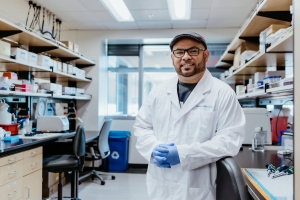
MIMG Faculty Dr. Lili Yang and Dr. Donald Kohn among UCLA scientists to receive CIRM Quest Awards
June 27, 2022
Associate Professor of MIMG Lili Yang and Distinguished Professor of MIMG are among a group of UCLA scientists to receive the Quest Award from the Broad Center of Regenerative Medicine and Stem Cell Research (CIRM) for their work in developing novel stem cell-based technologies.
Dr. Yang’s award of $1.4 million will fund her efforts to develop stem cell-engineered off-the-shelf chimeric antigen receptor-invariant natural killer T cells, or CAR-iNKT cells, to treat ovarian cancer, which accounts for more deaths than any other cancer of the female reproductive system. She aims to produce CAR-iNKT cells that target mesothelin, a protein that is found in high levels on the surface of ovarian cancer cells. The proposed immunotherapy builds on Yang’s work to generate blood stem cell-derived CAR-iNKT cells to target multiple myeloma, a project that received funding from CIRM in 2021. Yang will collaborate on this project with Dr. Sanaz Memarzadeh, a UCLA physician-scientist who specializes in ovarian cancer treatment.
Dr. Kohn’s $1.3 million award will support his research to develop a blood stem cell gene therapy to treat severe alpha thalassemia, an inherited blood disorder that causes a patient’s body to make less hemoglobin than normal. Hemoglobin carries oxygen to all parts of the body, so severe alpha thalassemia could lead to fetal death or a lifelong need for blood transfusions. If there is a team capable of creating an ex vivo gene therapy treatment for alpha thalassemia and bringing it to a clinical trial, this is the team, CIRM reviewers said.
For more information, click here.
MIMG Undergraduate Siyah Shah Receives 2022 Philip Whitcome Summer Research Fellowship Award
June 24, 2022
Please join us in congratulating Siya, who will be conducting biological research with Dr. Timothy O’Sullivan in Summer 2022.
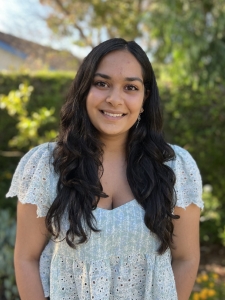
MIMG Students Recognized for Phages they Isolated and Characterized
January 18th, 2022
MIMG students in the Path 1 research track publish two articles in PLoS ONE about phages they isolated and characterized, under the supervision of Drs. Amanda Freise, Kris Reddi, and Jordan Moberg Parker. Articles available HERE and HERE.
Lili Yang lab licenses cell-therapy tech to start-up, receives CIRM TRAN1 award, and publishes two papers in Science Immunology and Nature Communications.
June 16th, 2021
The Yang lab recently published two papers back-in-back on Science Immunology and Nature Communications, reporting the identification of a new immune checkpoint and the repurposing of an old antidepressant for cancer immunotherapy. Details HERE and HERE.
The Yang lab also received CIRM TRAN1 award worth $5.9 million supporting the development of an off-the-shelf CAR-iNKT cell therapy for multiple myeloma. Read more HERE.
Additionally, the Yang lab’s off-the-shelf cell therapy technology was licensed by a biotech startup, Appia Bio, for commercial development. The company recently launched with $52 million Series A financing. You can read more about the licensing agreement HERE.
Timothy O’Sullivan receives Excellence in Research Award
June 7th, 2021
Excellence in Research Award for an Untenured Professor
Timothy O’Sullivan – Assistant Professor, Microbiology, Immunology, & Molecular Genetics
Dr. O’Sullivan is awarded for his paper, “ILC1 Confer Early Host Protection at Initial Sites of Viral Infection” Cell 2017. In this impressive paper, Dr. O’Sullivan and colleagues show that a unique subset of immune cells within tissues represents the first line of defense to viral infections. Without this rapid tissue-resident immune cell response, the immune system cannot efficiently control viral replication resulting in more severe infections.
